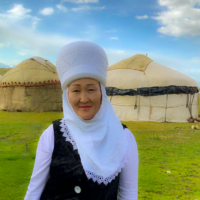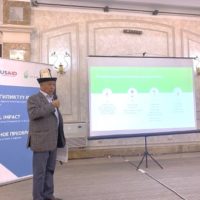In the remote Rasht Valley of Tajikistan, a pioneering project is helping farmers overcome a major challenge: keeping their crops fresh and unspoiled until they reach the market. The US Ambassador to Tajikistan, Manuel Micaller, recently visited one of 15 new “Climate Control Facilities” that are making this possible.


These high-tech storage units were established through a joint effort by the AKF Tajikistan and USAID. But their design didn’t come from experts alone. Local farmers were involved from the start.
Over eight months, 16 farmers participated in workshops to identify their biggest needs using a “Human-Centered Design” approach. Climate-controlled storage emerged as the top priority.
The farmers invested half the costs to develop the facilities, ensuring they had ownership.
The new units use advanced cooling technology to maintain temperatures as low as 21°F (-6°C). This dramatically slows spoilage, allowing farmers to store fruits and vegetables for months after harvest.
During his visit, Ambassador Micaller saw firsthand how one farmer is using precise temperature and humidity controls to keep produce fresh. It’s a solution that increases profits by preventing spoilage and enabling off-season sales when prices are higher.

But the benefits go beyond better storage. The project is forming a cooperative of entrepreneurial farmers to grow premium pears and apples. Together, they’ll get training in marketing, branding, transportation and managing the cooling units.
By collaborating, these farmers can reduce costs, access wider markets outside the valley, and build a reputation for outstanding regional produce. Custom branded boxes will help create a distinctive identity.
This climate-smart approach, developed under AKF’s Local Impact project, showcases how sustainable solutions can emerge when farmers’ voices are valued. A little cooling power can empower rural communities, boost food security, and drive economic growth from the ground up.



